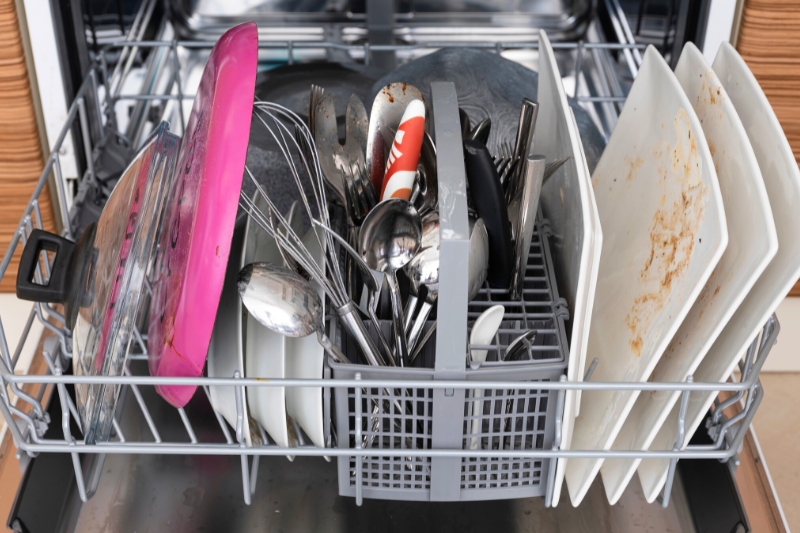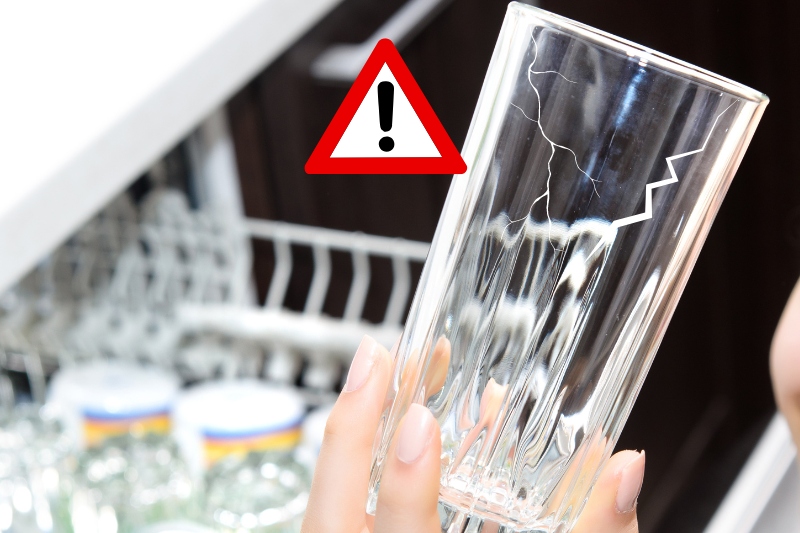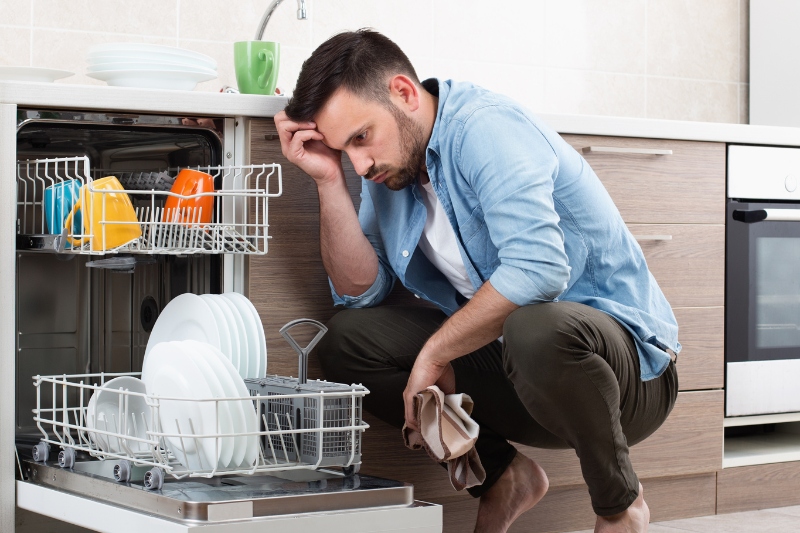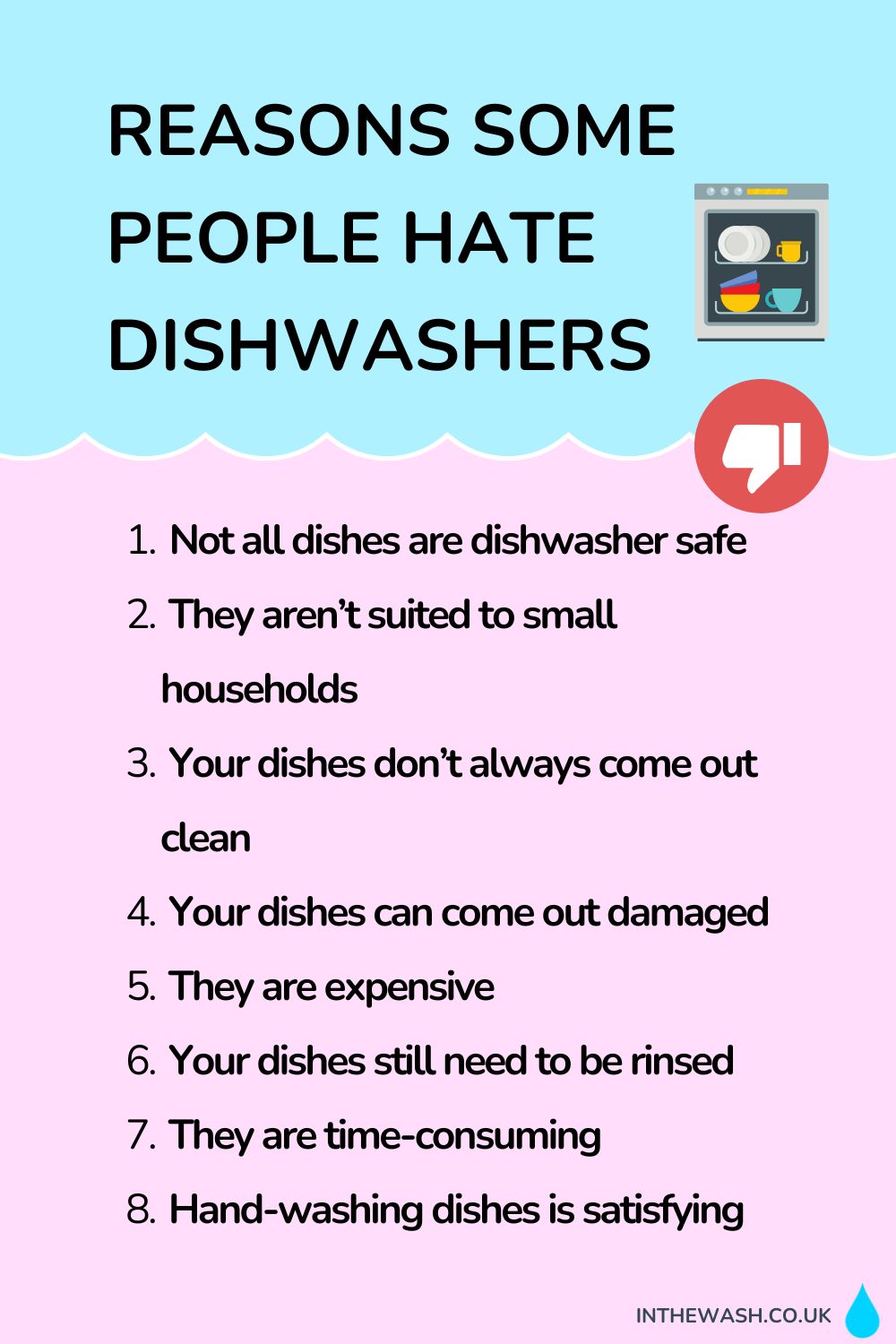Dishwashers have been around for over 100 years and have been a staple in many households since the 70s.
However, even with their rising popularity, plenty of people out there hate dishwashers and see them as a bad investment.
In 2018, 49% of UK households owned a dishwasher, and this statistic has likely increased in the last five years.
Although this is a high figure, it does suggest that around half of the UK population does not use these appliances. But why is this? Is it merely personal preference? Or is there a reason that so many people prefer to hand wash their dishes?
As with all debates, there are plenty of arguments to support the views of those both for and against dishwashers.
People often talk about the benefits of owning such an appliance, but there are also a variety of drawbacks that shouldn’t be overlooked.
In this article, we’ll find out what these drawbacks are and discuss why they have made so many people swear off the use of dishwashers for good.

1. Not All Dishes Are Dishwasher Safe
Perhaps the main appeal of owning a dishwasher is that it spares you the trouble of hand-washing all your dishes. Of course, if you’ve had a quick snack, this isn’t such a big thing, but it soon becomes convenient when you find yourself cooking a large meal.
The problem with this is that many dishes are not dishwasher-safe. This includes non-stick pans, wooden chopping boards and utensils, and items made of thin plastic.
Any kitchenware you own that isn’t marked as “dishwasher safe” must be hand-washed if you want to keep it in pristine condition.
This raises the question of whether it is worth using your dishwasher when you already have to handwash several dishes. Why not simply wash the rest of your kitchenware at the same time?
2. They Aren’t Suited to Small Households
Another major drawback of dishwashers is that they are not well suited to smaller households.
Dishwashers are large appliances that can hold numerous dishes. Aside from the fact that they take up a lot of space in smaller homes, this also means that you will need to accumulate a lot of dirty dishes before it’s worth turning the dishwasher on.
If you have a big family, this easily happens after every mealtime. However, for smaller families that don’t create much washing up, it could be several days before your dishwasher is full.
This often leads to essential kitchenware being taken out of the dishwasher and hand-washed so it can be used before the appliance is turned on.
While there is always the option of turning your dishwasher on before it is full, this will increase your water and electricity bills. It’s also not the most environmentally-friendly practice, something that more people are becoming conscious of in recent years.
3. Your Dishes Don’t Always Come Out Clean

Everyone knows dishwashers are designed to clean your kitchenware, making it look sparkling and new. While they often do a good job of this, these impressive results are not always guaranteed.
When you buy a new dishwasher, it will come with general instructions for correctly loading your dishes. This is to ensure that your kitchenware will be cleaned properly and that no damage occurs during the wash cycle.
Unfortunately, no matter how well you follow these instructions, there is always the chance that some of your dishes will come out dirty.
While your dishwasher is in use, the inside becomes incredibly hot. This means that any food remnants still stuck to your dishes will become caked on, making them very hard to remove.
Considering the time it takes to soak and properly clean the food remnants off these dishes, many believe they would have been better off hand-washing them instead.
4. Your Dishes Can Come Out Damaged

In an earlier point, we discussed that not all kitchenware is “dishwasher safe”. This means that these dishes will become damaged when washed in the harsh conditions of the dishwasher.
What many people don’t realise is that even dishes considered “dishwasher safe” can still suffer from damage during the wash cycle. For example, glasses and mugs come out chipped, pans become scratched, and knives turn blunt.
This may not be the biggest issue in the world, but it does mean that you become more inconvenienced when eating, drinking, and cooking using those items. For some, it’s worth hand-washing their dishes to ensure they are kept in pristine condition.
5. They Are Expensive
When you’re tight for money, the cost of purchasing, running, and maintaining a dishwasher soon adds up. Even when searching for a budget dishwasher, you’re looking at a price tag of over a few hundred pounds.
On top of the initial purchase of the dishwasher, you also have the added costs of dishwasher detergent, dishwasher salt and rinse aid to keep your appliance in top condition.
Compared to hand-washing, this is a lot of added expense. Even dishwasher detergent is more costly than traditional washing-up liquid!
While the majority of these costs are minor expenses when viewed alone, they soon add up over the course of the year.
Compared to the cheap soap and sponge needed to hand-wash dishes, this could easily be viewed as pouring money down the drain.

6. Your Dishes Still Need to Be Rinsed
To allow your dishwasher to work at its optimum capability, you need to rinse off your dishes before loading them into the trolleys.
Any food remnants that remain on your kitchenware will become trapped in your dishwasher filter and prevent it from cleaning properly until it has been emptied.
One of the main benefits of using a dishwasher is that you save on your water bill. But when you need to take the time to rinse your dishes in the sink anyway, why not simply add a little soap and hand-wash them while you’re at it?
Dishwashers on their own may use less water than hand-washing, but when you add in the water you’re using to wash away the food remnants first, they might not be as water efficient as they seem.
7. They Are Time-Consuming
Many people like dishwashers because they save time that would otherwise be used doing the dishes by hand. What they don’t realise is that using a dishwasher can be very time-consuming in itself.
When you take into account the time it takes to properly rinse and load your dishes into the dishwasher, unload them, wash any that are still dirty, and put them away, you may find that you actually save time by hand-washing.
Plus, a dishwasher is just one more thing to add to your list of chores, as they need to be cleaned once a month to run optimally.
If you also include the time it takes for the dishwasher to complete a wash cycle, this is definitely the more time-consuming way of washing your dishes. Even though you’re not cleaning the dishes yourself, many people find that the unfinished task remains on their minds until the dishwasher has been unloaded, meaning they can’t properly relax until the job is done.
8. Hand-Washing Dishes Is Satisfying

The last reason some people hate dishwashers is not a drawback of the appliance itself but rather a benefit of doing dishes the old-fashioned way. Simply put, hand-washing dishes is satisfying!
The time spent each day doing the washing up gives people time out of their busy day to pause and relax. Some people listen to music or a podcast while doing it, and when done mindfully, this chore has been known to reduce stress and anxiety.
Loading a dishwasher doesn’t have the same effect on your mental health, therefore taking away this moment of peace that many people enjoy. It also lacks the sense of achievement that can be felt after washing your dishes by hand, as the dishwasher does all the hard work. Using a dishwasher may be convenient, but it is far from satisfying.


Hannah has a passion for cleaning. She worked her way around Australia by cleaning hostels in exchange for free accommodation and used her cleaning skills to bag a job as a chalet host for a luxury ski company in France.






